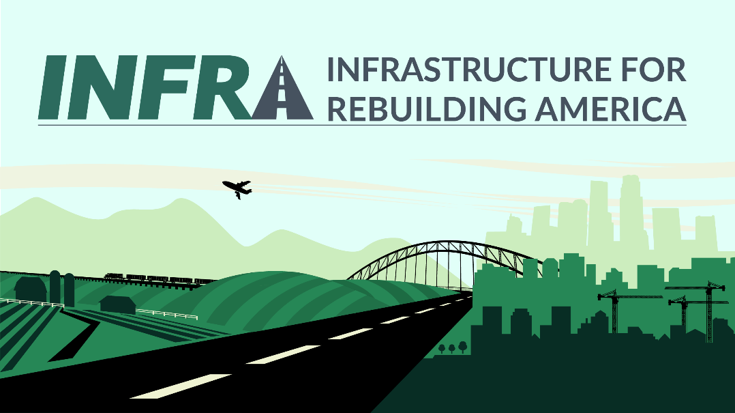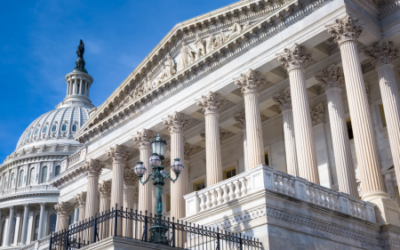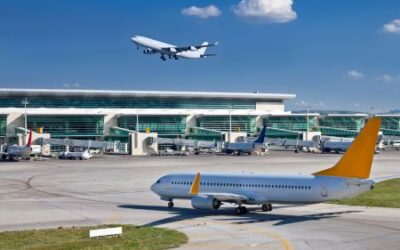Last week the U.S. Department of Transportation (USDOT) disbursed $1.5 billion for upcoming projects designed to make highway, multimodal freight and rail infrastructure safer, more efficient and resilient. More will follow and it is important to note that while state transportation agencies will oversee most of the projects, the work will be done in cities and counties in both urban and rural areas.
This particular tranche of federal funding is available from USDOT’s Infrastructure for Rebuilding America (INFRA) program. Although the program has existed since 2015, it gained great favor as the Infrastructure Investment and Jobs Act (IIJA) legislation was being created. Congress allocated billions more in funding to the program and the new investment capital is now flowing to eligible projects throughout America.
A total of $8 billion is available for various types of surface transportation projects. The funding will support projects that may not commonly be thought of as infrastructure – projects such as wildlife crossings, marine highway corridors, and various types of upgrades at ports.
New selection criteria places a high premium on collaborative initiatives where alternative funding will be made available. Public-private partnerships (P3s) are specifically encouraged. Congress continues to aggressively incentivize private sector investment in public projects in an attempt to lessen the financial load on regional governmental entities.

INFRA funding will also support construction of a 100,000 square-foot warehouse at the Port of Philadelphia’s Tioga Marine Terminal. The $20.3 million in funding will be used to modernize and streamline how the terminal’s main gate operates. The new warehouse will significantly expand the port’s storage capacity. It will also improve operational efficiency to guide cargo seamlessly through the port and reduce the instances of lengthy re-routing actions. The improvements will include components designed to reduce congestion and carbon emissions from trucks idling at the port as they await cargo.
A $127 million award jointly to the city of Cincinnati and Hamilton County will be used to replace a 90-year-old Western Hills Viaduct. The funding will not cover all costs as the project’s overall expenses are projected to exceed $400 million. Replacement of the operationally deficient viaduct will be constructed near an interchange along Interstate 75, which is being redesigned to accommodate the project. The expanded capacity for rail and road transportation will allow freight to move more reliably and efficiently through the region. The new viaduct will also feature innovative technologies that offer economic and sustainability benefits, such as photovoltaic (PV) light fixtures, carbon-absorbing surface treatments, and other modernizations. Efforts to replace the weathered viaduct, which handles 55,000 vehicles daily, will be scaled to enhance safe freight and passenger mobility.
The city of Austin in Minnesota received $25 million for reconstruction efforts on eight bridges. City leaders will oversee the work of replacing several overhead structures – two mainline bridges, and one pedestrian bridge along a segment of Interstate 90. With approximately $150 million in federal funding available, the city will still be required to find additional funding because the overall project carries a cost estimate of $300 million. The project will also include work to enhance ramp connections and modernize traffic signaling networks along the interstate. The new bridges will be designed to support an adjoining network of ADA-accessible trails and the area’s stormwater infrastructure will be enhanced as well.
A federal INFRA grant of $105 million to the city of Detroit will accelerate the delivery process of upgrading and modernizing a stretch of freeway running through the city. Improvement of this mile-long freeway is expected to have a cumulative cost of $300 million. The work will be designed to modernize the freeway, improve public safety, and rectify inequities that are common to the freeway. Additionally, the project will include upgrading or replacing deteriorated roads, removing fifteen outdated bridges, rehabilitating a stormwater runoff pump station, upgrading to LED lighting, widening sidewalks, creating buffered bicycle trails, and establishing safer pedestrian crossings with adaptive signaling. Smart technologies will be included to improve safety, reduce maintenance costs, and reconnect underserved communities that have been separated or set apart by the freeway.
This recent INFRA funding will accelerate the launch of hundreds of additional projects such as these. The capital investment being made will continue for the next five years and the objective is to create a safer, more efficient, and resilient transportation system throughout America. Every project will call for private sector involvement and while stimulating local economies and creating new jobs, the projects will also require all types of new technology and equipment.







